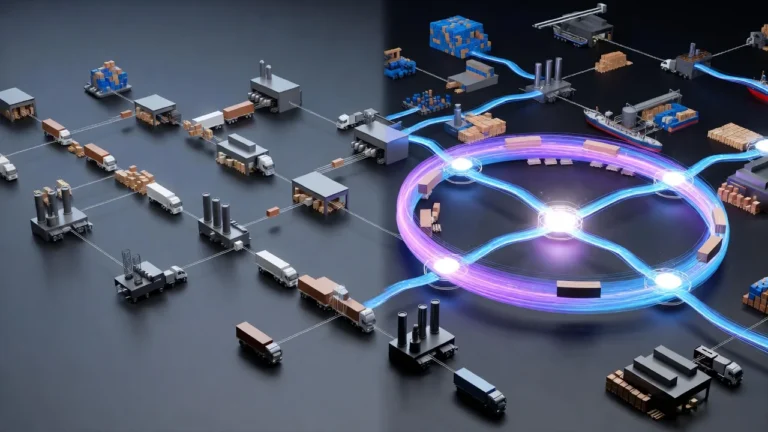
Bridging the Gap: Why Stronger Communication and Training Are Key to Successful Generative AI Adoption
As companies increasingly adopt generative artificial intelligence (GenAI) tools, a new study by Perficient, a leading global digital consulting firm, highlights a critical disconnect between executives and employees. This research underscores the urgent need for improved communication, transparency, and role-specific training to ensure successful integration of GenAI in the workplace.
The study, based on a survey of over 1,000 U.S. office workers, reveals that while executives are optimistic about GenAI’s potential to drive efficiency and innovation, many employees feel unprepared, unsupported, and even anxious about its adoption. These findings challenge common assumptions, showing that the divide in experiences and perceptions is more closely tied to job level than age or other demographic factors.
The Growing Divide in GenAI Adoption
GenAI is transforming industries by automating tasks, enhancing productivity, and enabling innovative solutions. However, Perficient’s research shows that this technological shift is not being universally embraced across organizations. While 76% of respondents reported that GenAI improved their productivity—whether by increasing output quality or quantity—the benefits are unevenly distributed.
A significant gap exists in how employees at different levels perceive and interact with GenAI. For instance:
- 42% of employees stated they had not received any formal communication from their employer about GenAI.
- Less than 35% of respondents had access to practical, role-specific training tailored to their needs.
These statistics highlight a pressing issue: without proper guidance and resources, employees may struggle to adapt to new technologies, potentially hindering organizational progress.
Leadership Enthusiasm vs. Employee Uncertainty
Executives are bullish about GenAI’s transformative potential, viewing it as a catalyst for operational excellence and competitive advantage. However, frontline workers often feel left behind. Many report feeling unsafe or unsure about how to use these tools effectively. According to Santhosh Nair, Senior Vice President at Perficient, “Organizations are moving quickly to adopt GenAI, but our research shows that many employees are not receiving the communication or training they need to adapt.”
This lack of alignment can lead to frustration and resistance among employees, ultimately undermining the very goals GenAI seeks to achieve. To address this, companies must prioritize transparent communication and invest in comprehensive training programs that empower all employees—not just senior leadership—to embrace AI confidently.
Building Trust Through Empowerment
To fully harness the power of GenAI, organizations must focus on fostering trust and providing clear direction. As Eric Walk, Director at Perficient, explains, “GenAI is incredibly promising, but success will depend on building trust, offering clear guidance, and empowering employees at every level.”
Key strategies for achieving this include:
- Strengthening GenAI Governance: Establishing policies and frameworks that promote ethical and responsible use of AI.
- Increasing Transparency: Clearly communicating the purpose, benefits, and risks of GenAI initiatives to employees.
- Tailored Training Programs: Providing hands-on, role-specific training to help employees understand how GenAI applies to their daily work.
- Encouraging Feedback Loops: Creating channels for employees to share concerns, ask questions, and provide input on GenAI implementation.
By addressing these areas, businesses can turn employee apprehension into enthusiasm, unlocking the full value of GenAI investments.
Insights from Perficient’s Research
Perficient’s GenAI Workforce Study surveyed 1,054 U.S. office workers spanning various industries and experience levels. The findings paint a nuanced picture of today’s workforce dynamics:
- Employees’ readiness for AI-driven transformation varies significantly based on tenure within the organization.
- Executives tend to view GenAI adoption as an opportunity for growth, whereas individual contributors often express uncertainty or skepticism.
- Despite widespread recognition of GenAI’s productivity benefits, gaps in training and communication persist.
These insights emphasize the importance of aligning leadership vision with grassroots execution. Organizations that proactively bridge this gap will be better positioned to convert AI-related anxiety into a sustainable competitive edge.
How Perficient Can Help
Perficient offers award-winning GenAI consulting services designed to help businesses responsibly build and implement intelligent solutions. From strategy development to execution, Perficient partners with companies to navigate the complexities of AI adoption while prioritizing ethics, transparency, and employee empowerment.
For organizations looking to stay ahead in the rapidly evolving world of AI, Perficient’s expertise provides invaluable guidance. To learn more about Perficient’s research and download the full report, visit The State of GenAI in the Workforce.





